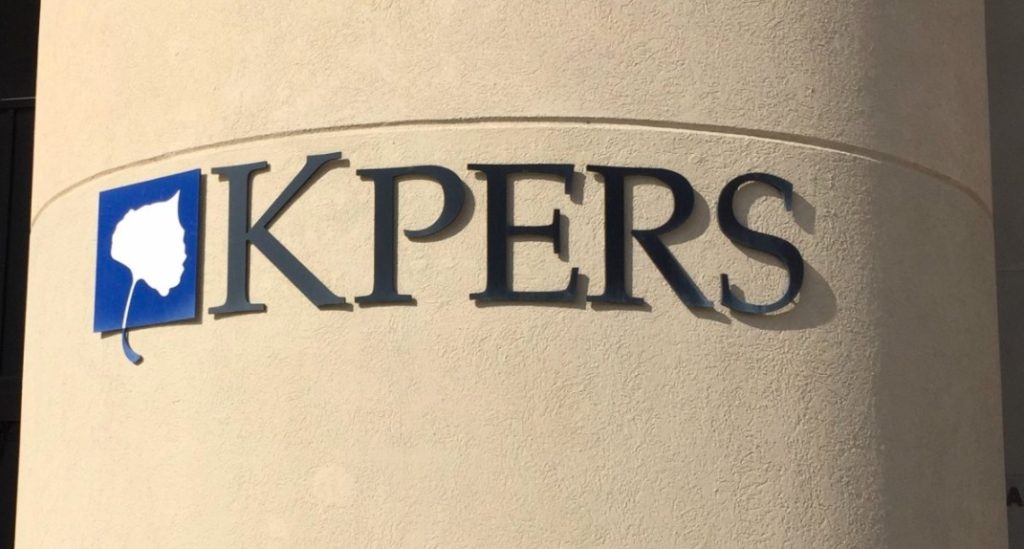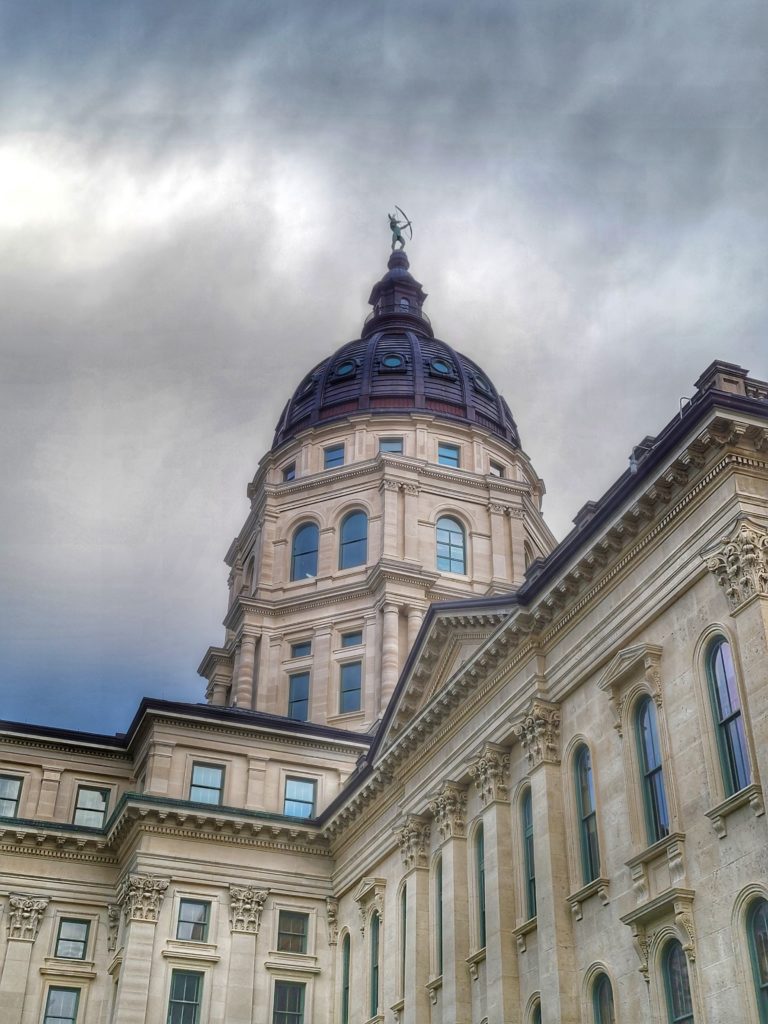The second week of the 2023 legislative session has been typical of “Week 2s” of past legislative sessions. Committees are doing a good job of hosting informational briefings, presentations, and even a few hearings for proposed legislation. New members are getting a taste of what life will be like for them as legislators. Some freshman lawmakers are busy asking questions, speechifying on behalf of constituents, and possibly even trying to ruffle a feather or two.
One thing we’ve reported on that has been atypical of the kicking off of the legislative session was the postponement of Gov. Laura Kelly’s State of the State Address. It’s been widely reported Gov. Kelly’s speech was postponed due to what is now being considered a false positive COVID test. Her speech, which has undoubtedly been written, will be on Tuesday, Jan. 24 at 6 p.m. We will provide a link next week for those interested in watching the address live. Kansas NEA will be well represented at the speech by President Sherri Schwanz and Executive Director Kevin Riemann as special guests of Gov. Kelly.
Movement on KPERS?

In short, many Kansas legislators are beginning to see the 2012 pension reform act that created KPERS Tier III is a problem. In these first two weeks of the session, public and private talk is that there is a need to fix KPERS Tier III.
Kansas Public Employees Retirement System Executive Director Alan Conroy has been before several committees in the first two weeks of this session. His presentations have been largely informational.
KPERS is always a hot topic of conversation during legislative sessions for a host of reasons. KPERS was created as a DEFINED BENEFIT plan in 1961 and administers three basic plans.
- KPERS/State/School/Local – By far the largest of the plans, this plan covers more than 1,500 employers and has almost 310,000 active, inactive, or retired members. This is the plan that covers all state employees, all 105 counties, and about 1,100 other public employers. MOST IMPORTANT TO KNEA, this is the plan that covers local school districts.
- Kansas Police and Fire (KP&F) – Also a very important plan that is covered.
- Judges – The smallest plan in the system that covers Kansas judges.
The health and solvency of the KPERS system are of vital concern to Kansas NEA. A strong pension system is often one of the largest tools in the recruitment and retention of educators in any jurisdiction. Furthermore, public educators are PUBLIC SERVANTS and deserve a healthy pension that is not jeopardized by poor financial decisions by the plan sponsor also known as the Kansas Legislature.
As a result of economic challenges, both beyond the control of the legislature and self-created, the KPERS system has undergone two major overhauls that took the three basic plans and created a tiered benefit system within them. First in 2007 with the creation of KPERS Tier II and the second in 2012 creating KPERS Tier III.
KPERS Tier III applies to all employees hired after January 1, 2015. KPERS III was a radical change in structure and compensation. Though it is still considered a Defined Benefit plan, it is based on a final ending account balance at the time of the employee’s retirement. In effect, KPERS III is a hybrid between a defined benefit plan and a defined contribution plan.
What does this mean?
A defined benefit (DB Plan) plan is preferable in the sense that it takes into account the retiree’s years of service, their highest average salary (5-year average), computes a multiplier, and determines a monthly benefit. Furthermore, the employer (the State of Kansas) assumes all financial risks and ultimately bears all the responsibility of mismanagement by the plan sponsor – the Kansas Legislature.
A defined contribution (DC Plan) is far less palatable, particularly KPERS Tier III. In Tier III, the employee assumes much of the risks when market instability becomes an issue. As a result, the ending balances of a retiree’s pension account can suffer greatly at no fault of their own and some calculations have shown that monthly retirement benefits are greatly reduced. Furthermore, KPERS III members do NOT receive the full employer contribution of 6% for several years.
Back to the good news: As mentioned above, legislators are seeing the need for change. The challenge we have is in what reform looks like. Kansas NEA would like to see the elimination of KPERS Tier III and see all of our members move back to KPERS Tier II.
Stay tuned.
House Democrats Caucus Invite

Kansas NEA is proud to announce our Government Relations team was invited to present our legislative priorities to the House Democratic Caucus this week.
As always, we were warmly welcomed by a room full of pro-public education advocates. What makes this invitation notable is it seems to have been a while since we were invited. Not that the House Democratic caucus ever abandoned us, not even close. However, exclusive invites to present to the House Democrats are reserved for groups that represent their friendliest constituencies. We should be proud to be on that list and greatly appreciate their hospitality. The Kansas House Democrats still love public educators!
Additionally, we’ve had several productive conversations with Republicans as well. We look forward to more engagement in the future and will report on how relationship-building with both Republican and Democratic members of the legislature is progressing. There seems to be some room for discussion with a multitude of legislators on both sides of the political coin.
We will continue to advocate for the issues and values that are represented in the resolutions that come forward from our members and our Representative Assembly. But we have one additional ask of all friendly legislators: Please let us be at the table when you are crafting and discussing legislation that directly impacts our members, our public schools, and our public school children.
Being at the table doesn’t mean 30-second testimony before a committee. Being at the table means being given the same deference and ability to share our expertise as is allowed to so many of the other advocacy groups, some of which are allowed to draft legislation, in the legislative process.
We’re asking for real, good-faith conversations. We believe there are several legislators that may be pleasantly surprised by what we have to offer.
School Supplies Sales Tax Holiday Bills

Three different bills had hearings this week that proposed tax exemptions on the purchase of school supplies. Senate Bills 21, 29, 55 were all heard in the Senate Tax Committee on Thursday, January 19.
Kansas NEA Director of Government Relations and Coalitions Tim Graham submitted testimony on behalf of the association in support of all three bills. Read his testimony here.
Each bill took slightly different approaches to tackle the issue, but the premise was ultimately the same: a sales tax “holiday” that would allow several items to be free from state and local sales tax upon purchase for use prior to the school year. Testimony indicated both Oklahoma and Missouri have similar laws on the books.
During the annual legislative advocacy training on Jan. 7, Kansas NEA staff encouraged attending members to get acquainted with the Kansas Legislature’s website to watch archived footage of legislative hearings. We encourage you to do the same for the hearing on Senate Bills 21, 29, and 55 by clicking here.


